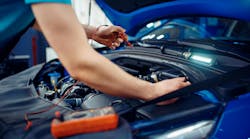As part of the U.S. government's all-of-the-above energy strategy, the Energy Department announced 20 new projects to help states and local governments intended to cut red tape and develop the infrastructure, training and regional planning needed to help meet the demand for alternative fuel cars and trucks, including vehicles that run on natural gas, electricity, and propane.
"Building a clean and secure U.S. transportation system that leverages our domestic energy sources will give American families, businesses, and communities more options and reduce fueling costs," said U.S. Energy Secretary Steven Chu. "At the same time, these projects will help lead the way to further reducing America's dependence on foreign oil and protecting our nation's air and water."
Through the Department's Clean Cities initiative, these projects address a range of community infrastructure and training needs, such as providing safety and technical training for fleet operators, mechanics, first responders and code officials; streamlining permitting and procurement processes; and helping public and private fleets integrate petroleum reduction strategies into their operations.
For example, the city of Austin, Texas, has been selected for an award of $500,000 to streamline infrastructure procurement, conduct electric and natural gas vehicle safety training, host workshops to help fleet users in the San Antonio and Austin region, and organize training seminars on multi-family housing and workplace electric vehicle charging. In Kansas City, Missouri, the Metropolitan Energy Center will leverage a federal investment of approximately $815,000 in to support vocational training programs for code officials and fleet managers—including managers at local colleges and technical schools—and will also establish a Green Fleet Technical Assistance and Certification program for the region.
Cumulatively, the Energy Department is investing about $11 million in these Clean Cities projects.
Since 1993, the Energy Department's Clean Cities initiative has supported community-led efforts to deploy vehicle and infrastructure technologies across a broad portfolio of alternative fuels from biofuels and natural gas to propane and electricity, helping to limit pollution and save money. More information on this work is available on the Clean Cities website.

